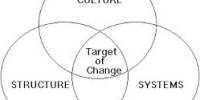Definition of Gift
Hedaya defines gift in the following words:
“Gift is an unconditional transfer of ownership in an existing property, made immediately and without any consideration”.
Baillie defines gift as under:
“Gift is a transfer which confers the right of property, in something specific, without an exchange.”
Kinds of Gift
The Muslim law recognized four kinds of gifts.-
(i) Hiba- gift properly called,
(ii) Sadaqa- Alms
(iii) Hiba- bil-iwaz-gift with exchange; and
(iv) Hiba-ba-shart-ul-iwaz-gift with a stipulation for a return.
(i) Hiba
Hiba is a transfer of properly, made immediately, and without any exchange or consideration. In practice this is only kind for which the term “hiba” on gifts is used.
(ii) Sadaqa
The “Sadaqa” is a gift with religious motive. The word has been used in Quran for alons. Sadaqa is a gratuitous transfer in the same manner as a gift. It is a gift in the nature of charity. The delivery of the property is essential.
(iii) Hiba-bil-iwaz:
The hiba-bil-iwaz is a transaction made up of two district donations, separate acts of hiba, between two person, each of whom is alternately the donor of one gift and the donee of the other. In other words, when the donce of a certain gift makes a gift of the original donor signifying his wish that the present gift is by way of iwaz (return or exchange) for the original gift.
(iv) Hiba-ba-shart-ul-iwaz
It is a hiba-bil-iwaz form of with a shart on condition. Where a gift is made with a stipulation for a return, it is called hiba-ba-shart-iwaz. As in the case of a hiba, so in the case of a hiba-ba-shart-ul-iwaz, delivery of possession is necessary to make the gift valid.[23]
Essentials of a valid gift
It is essential to the validity of a gift that there should be (1) a declaration of gift by the donor (2) an acceptance of the gift, express or implied, by or on behalf of the donee, and (3) delivery of possession of the subject of the gift by the donor to the doncee.[24] It these condition are complied with, the gift is complete.
(1) Declaration
Declaration does not mean simply an announcement of the gift but it also entails that the donor should have a real intention of making the gift. Tyabji says: “Where there is no real and bona fide intention to transfer the ownership of the subject of gift, an alleged gift may be of no effect.[25]
(2) Acceptance
The donee must accept the gift. This acceptance may be express or implied (that is, by conduct). But the gift of a debt to a debtor or his is valid without acceptance and is not invalidated by his rejection.
(3) Delivery of possession
When the donor makes a declaration of a gift and the donee accept, then the possession of the thing gifted should also be given to the doree. Such delivery of possession may be actual or constructive.
Normally, the question as to whether possession law been delivered to make the gift complete is considered relevant only when such an issue is raised between the donor or those claiming under him on the other. Once the donee accepts the gift and was also specifically found to have been, even on the date of the gift deed, in possession of the property, it is not given to persons other that the donor, who was alive, to challenge the validity of the gift on the ground of want of delivery of possession.
When the delivery of possession is completed
Under, Muslim Law, a gift is complete only after the delivery of possession. If the delivery of possession itself is incomplete, the gift, also remain incomplete and the title of the property does not pass on to the donee. As to when a donee become the owner of the properly depend upon the fact as to when the delivery of possession was completed.
In respect of movable properties, the delivery of possession is said to have taken place at a time when the property is physically transferred to the donee. But, in respect of the immovable or incorporeal properties, it is difficult to prove the exact time of the delivery of possession.[26]
When delivery of possession is not necessary
The general rule of gift under Muslim law is that the possession of the property must be delivered by the donor to the donee; to this rule there are following exceptions:-
(1) Residence in the same house
No delivery of possession is necessary where the donor and donee both are residing at the time of gift in the same house which is the subject of gift.[27] But there must be some unequivocal manifestation by the donor of an intention to transfer possession to the donee (Humera Bibiu. v Najmunnissa).[28]
(2) Property in the occupation of tenant
The delivery of possession of immovable property means the physical (actual) departure of the donor from the premises with all his goods and chattles, and the donee formally enters into possession. But gift of land in the occupation of tenant may be completed by-
(a) a request to the tenant by the donor to attorn to the donee, or
(b) delivery of the title-deeds; or
(c) mutation in the revenue register (Khatauni), or Municipal Register (Shaik Ibrahim v. Shaik Suleman).
(3) Property by husband to wife
The delivery of possession is not a necessary condition to the validity of a gift when the gift is from husband to wife.
The gift was made by the husband to his wife, and the mutation of names was duly effected in the public records and the wife’s name was entered as proprietress. But the husband continued to live in the house and continued to receive the rent from tenants even after the gift was made. “In the case by a husband to his wife, once mutation of names has been proved, the nature presumption arising from the relation of husband and wife existing between them is that the husband’s subsequent acts with reference to the property were done on his wife’s behalf and not on his own”.
In Mohammad Sadiq v. Fakhr Jaman[30] the Privy Council went a step further and held that where the deed of gift declared that the husband had delivered possession to the wife and the deed was handed over to her even a mutation of names was not necessary. The Madras High court is Noohu Pathummal v. Ummathu Ameena[31] observed that, “the fact that the husband continued to lie in the house or to receive the rents after the date of the gift will not invalidate the gift, the presumption in such a case being that the residence was on account of matrimonial obligation and that the rents are collected by the husband on behalf of the wife and not on his own account.”
(4) Gift to a minor by father or other guardian
It a gift of property takes place from a father or other guardian to a minor, on delivery of possession is required and all that is necessary is to establish a bona fide intention to give. In Amirunnisa v. Abdunnisa the Privy Council said: “where there is on the part of the father or other guardian a real and bona fide intention to make a gift, the law will be satisfied without change of possession, and will presume the subsequent holding of the property to be on behalf of the minor.”
Oral gifts, writing and registration
Under the Muslim law writing is not essential to the validity of a gift either of movable or of immovable property. Section 122 to 129 of the Transfer of Property Act, 1882, deal with gifts. By section 123 of this Act it is provided that a gift of immovable property must be effected by a registered instrument signed by the donor and attested by at least two witnesses, and that a gift of movable property may be effected either by a registered instrument signed as a foresaid or by delivery. But the provisions of section 123 do not apply to Muslim gifts. Section 129 of the Transferred of Property Act states, inter alia, that nothing in the chapter shall be deemed to affect any rule of Mohammedan Law.
Constitutional validity of oral gift
In a judgment delivered by Mr. Justic V.R. Krishna Iyer in Makku Rawther v. Mana-hapara charayi,[34] it was held that oral gift of “Secular” as distinguished from gift of “religious” nature should conform with the requirements of writing, attestation and registration as laid down in section 123 of the Transfer of Property Act, 1882, in order to survive the security of Article 14 of the Constitution. By classifying gifts in to religious and secular categories, this judgment imports in to the fabric of Islamic law something which was hither to unknown. It therefore requires a close consideration.
Who can make gift
Every Muslim who has attained majority and is of sound mind can make a gift. A woman has the same right to make a gift as a man, and marriage does not entails any disabilities. The ordinary presumption is that a person making a gift understands what he is doing; but if the donor is a woman designated as pardanashin, the presumption does not arise.[36] The suspicion of the court is aroused and the court is aroused and the court extends to the woman the same protection that a court of chancery would to the weak, the ignorant and the infirm. In such circumstances, in order to show that the gift was free from the effects of undue influence, it is necessary for the donee satisfy the court that the act was the free act of the woman. For this purpose, the proof of independent outside advice is the usual mode of discharging the burden on the donee.
Power to make gift
A Muslim may make a gift of the whole of his property. His power of making a gift of his property is unfettered except in the case of deathbed gifts.
A gift may be made in favour of the following:
(i) Any living person who is capable of holding property: Thus, strictly speaking, a gift to an unborn person is invalid. Take the example of A, who makes a gift to B, and after B’s death, to his male heirs. B has got no male heirs at the time of the gift. The gift is invalid.
(ii) Child in the womb: A gift to an unborn person may be made provided the child is born within six months from the date of the gift, because, in that case, it is presumed that the child was actually existing as a distinct entity in the womb.
(iii) Unborn person: A gift of limited interest in the unufruct to the property (ariat) may be made to an unborn person provided that such person is in existence when the interest opens out for him.
(iv) Juristic persons: Gifts may be made validly to such juristic persons as mosques, durgahs and charitable institutions like schools.
(iv) Non-Muslim: A gifts may be made to a non-Muslim. The gift property will be subject to the personal law of the donee, once the gets possession of it.
Conditional, Contingent and Future gift
Conditional gift
It a gift of the corpus of the property is subject to a condition which derogates from the completeness of the grant, the condition becomes void and the gift takes effect as if no condition has been attached to it.
Contingent gift
A gift cannot be made dependent on any thing contingent. The word “contingent” implies that no present interest exists, and that whether such right or interest will ever exist depends upon a future uncertain event.
Future gift
A gift can not be made to take effect at any future period. Therefore a gift of the future produce or income of any property or estate is invalid.
Revocation of gift
The donor is entitled to revoke his gift at any time before making over possession of the gift property.
The donor is entitled to revoke his gift even after making over possession of the gift property except when-
(a) The donor is the husband and the donee is the wife or vice versa;
(b) The donee is the blood relation within prohibited degree;
(c) The donee is dead;
(d) The gift property is either lost or gone waste;
(e) The basic character of the gift property is changed;
(f) Some other thing is so mixed up with the gift property that its separation from it be not possible
(g) The gift is wit exchange.
It shall be essential to obtain a decree from the court, for the revocation of gift after making over possession.
















